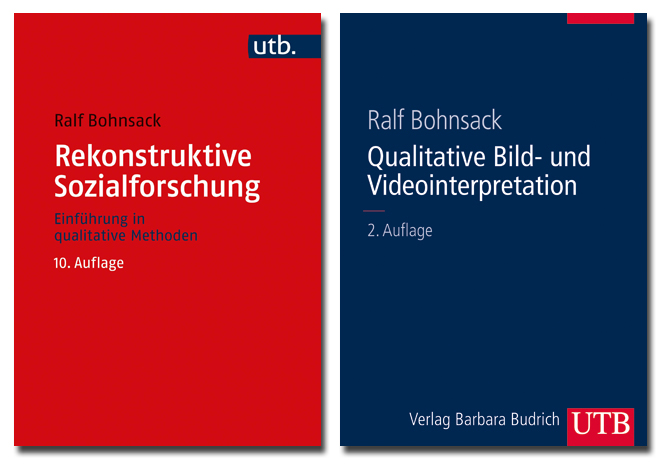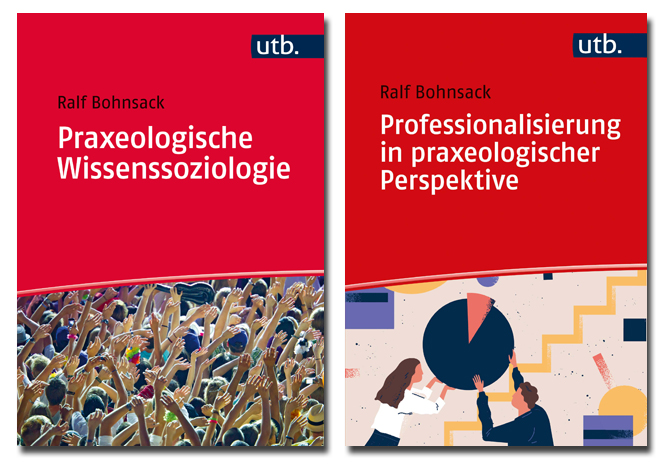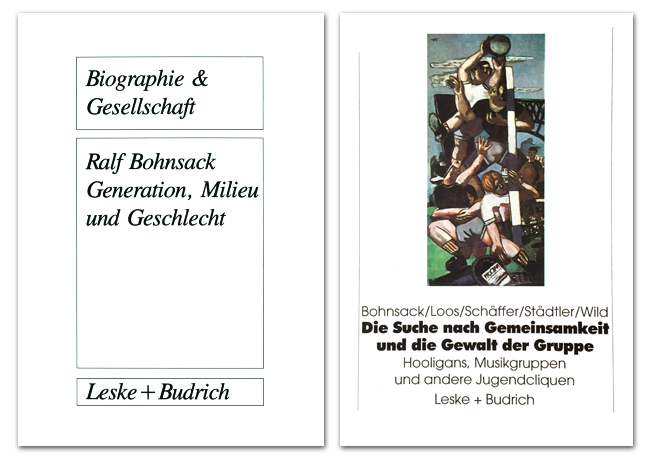Research Focus
The focus of my research is based methodologically on the documentary method and theoretically on the praxeological sociology of knowledge. These two areas can be understood as two sides of the same coin.
Concerning the documentary method, the basic and epistemological concepts are primarily in the service of the methodical and methodological implementation of empirical research. This relationship is reversed if the praxeological sociology of knowledge constitutes the major point of interest: The experiences gained through empirical inquiry and the corresponding methodological reflections are then primarily in the service of conceptual definitions, the deepening of the underlying meta-theoretical foundation, as well as the generation of new categories.
Methodical-Methodological Focus

My methodical-methodological focus is on the progressive elaboration of different methodological approaches and their triangulation (combination and integration) – both based on the documentary method as a reconstructive-praxeological methodology. This includes the following branches:
- Documentary discourse analysis, and in particular the group discussion process. These procedures take into account the autonomy of the interaction systems between actors, which cannot be reduced to the individual contributions and intentions of informants.
- Documentary picture interpretation, which – based on visual studies, German “image sciences”, and art-historical considerations – takes into account the inherent logic of pictures based on the reconstruction of the overall formal composition for the analysis of photos, drawings, and similar artefacts.
- Documentary video and film interpretation is a complex method of combining picture interpretation and conversational analysis, that enables a comprehensive study of the relationship between verbal and embodied practices.
- Discourse organization refers to the analysis of the formal structure, or pragmatics, of verbal conversations. Likewise, based on video analyses, the non-verbal or embodied level of communication was further subsumed under the topic of interaction organization. The latter also constitutes the basis for the analysis of heteronomous framing and power.
- For the interpretation of photos, videos, and films it remains pivotal to evaluate the relationship between the depicted producers (those in front of the camera), the depicting producers (those behind the camera), and to assess this connection concerning the design of visual artefacts and the reconstruction social (power) relations contained within the latter.
- The documentary method goes beyond the simple analyses of cases customary in qualitative research and strives for generalization based on the formation of (ideal) types through the praxeological type formation, which in return necessitates multidimensional analyses.
The claim to transdisciplinary validity within the social sciences is linked to the outlined approaches outlined above. These approaches and their methodological basis have already found transdisciplinary application – within the social sciences and beyond. Since an in-depth acquisition of methods requires practice through active research, I have preferably taught them in the context of research workshops. With a focus on educational science, I was involved in the transdisciplinary organisation of such research workshops for graduate students.
Theoretical Specialization

The progressive elaboration of the basic concepts of the praxeological sociology of knowledge is part of a critical examination of the “ethnocentrism of the scholar” (Bourdieu), i.e., the insufficient or missing access to a rationalistic social scientific theory formation concerning the inherent logic of everyday practices. In contrast to Bourdieu, however, the praxeological sociology of knowledge operates based on the empirical reconstruction of the action orientating knowledge that documents itself through social practices, i.e., the “atheoretical” knowledge (Mannheim). Based on Mannheim’s sociology of knowledge, the praxeological sociology of knowledge integrates references to ethnomethodology (Garfinkel), social phenomenology (Schütz), and cultural sociology by Bourdieu, as well as to Erving Goffman’s identity theory and Niklas Luhmann’s systems theory.
- The focus is not only on the modus operandi of social practice (habitus) but also on the relationship between practice, expectations, and imaginations (especially those of a normative nature) of those social groups that are being researched. I generally refer to this tension of habitus and norm as that of performative versus propositional logic.
- Conjunctive spaces of experience are constituted by the relation of tension between norm and habitus, between propositional and performative logic. This concept is at the centre of the categories of the praxeological sociology of knowledge. There are social, organizational, and interactive conjunctive spaces of experience (or milieus). Consequently, the praxeological sociology of knowledge operates on all three levels and in their subsequent relation to one another – a multi-level analysis, so to say.
- The predominantly inadequate or missing access of social sciences to the intrinsic, performative logic of practices leads epistemologically to a deficient consideration of such practices against the comparative horizon of rationalistic assumptions in the sense of a “hierarchy of better knowledge” (Luhmann).
- This deficient view can also be found, among other things, in professionalization research and in its image of practitioners. Here, I strived to develop new perspectives on the practice in the field of people processing organizations (especially teaching, early childhood education, and social work).
- My recent examination of the rationalistic discourse in social science stresses that this very discourse, just like individuals, yet lacks the capability to gain access to its very own empirical research practice. This has significant consequences for methodology and epistemology.
Subject Areas of Research

The spectrum of subjects I have worked on throughout my academic career is broad – especially when including the theses and post-doctoral dissertations I have supervised in my research workshops. Their range is transdisciplinary and extends beyond the social sciences to computer science, medicine, and theological biblical exegesis. Up until the turn of the millennium, the focus of my research was in the area of youth and adolescent development, as well as juvenile delinquency.
The systematic crossing of the established boundary of academic disciplines concerning youth research and criminal sociology within the context of my projects on hooligans and rock bands as well as young people of Turkish origin, funded by the German Research Foundation, can already be considered a contribution to transdisciplinary research culture. The central research interest of these studies was the adolescence-specific search for belonging to a social milieu in terms of education, gender, and generational milieus in the aforementioned adolescent peer group.
While the inquiry of social milieus was my primary concern up to the turn of the millennium, my research focus eventually shifted, as already indicated in my dissertation, to organizational milieus – especially concerning people processing organizations. This is expressed, among other things, in evaluation research as well as in the investigations of the relationship between professionals and their milieus in school, early childhood education, and social work, i.e., in professionalization research. My work in these subject areas was significantly influenced by the projects of the participants I supervised in my research workshops, which also applies to the subsequent research on professionalization. In this subject area, the development of a praxeological and epistemological approach revealed itself to be the major concern of my work to come.